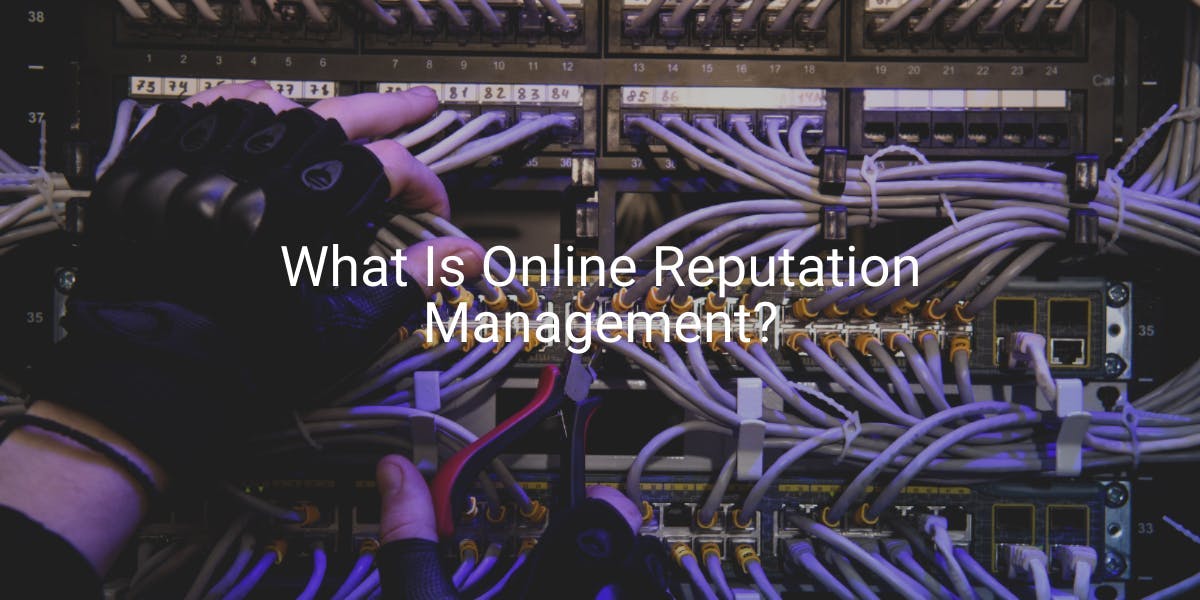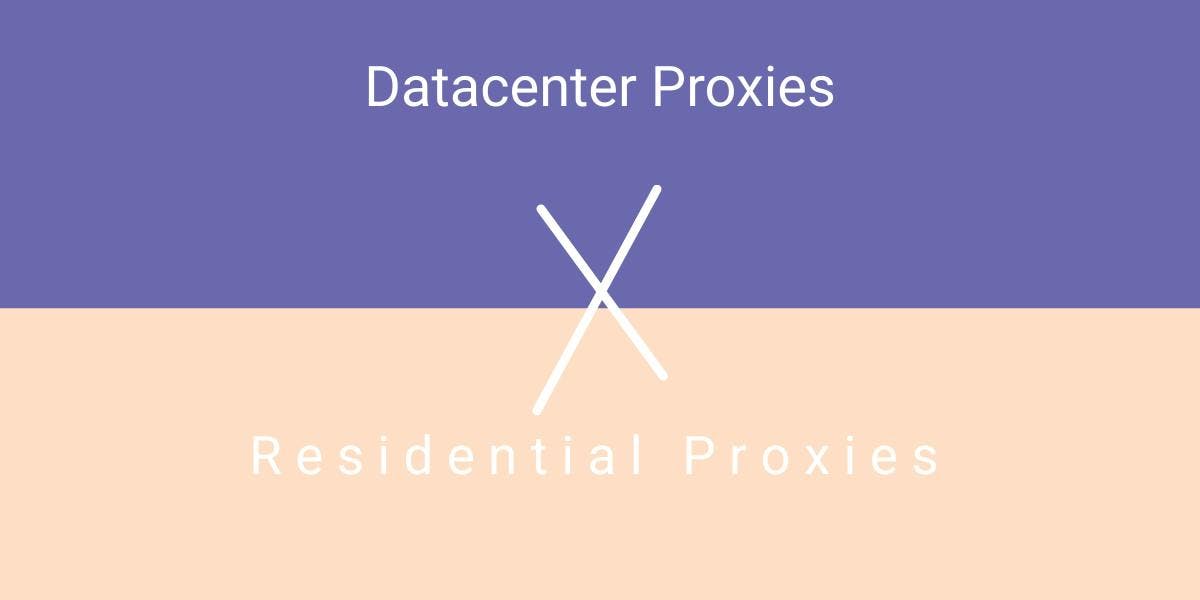What Is Online Reputation Management?
Flipnode on May 23 2023

Online reputation management (ORM) is a strategic approach that integrates marketing, public relations, and customer service to establish and uphold a positive online image for individuals, brands, or businesses.
The practice of digital reputation management involves monitoring and addressing negative customer feedback, promptly responding to unfavorable online narratives, and issuing appropriate public statements when necessary to mitigate reputational damage.
Given the significant influence of reviews on search engine rankings, online reputation management focuses on actively monitoring and controlling the search results related to a particular service or product.
In this article, we will provide an overview of online reputation management, explaining its purpose, and functionality, and highlighting its critical importance in today's digital landscape.
Why is online reputation management important?
The purpose of online reputation management is to take control of a business's online image, ensuring that it is not solely reliant on the algorithms of major search engines like Google. These algorithms often struggle to distinguish between truth and misinformation, making it crucial for businesses to actively shape and maintain a positive online reputation.
Here are the key advantages of online reputation management:
- Reliability: Managing online reputation enables companies to cultivate a trustworthy and reliable brand perception among customers. Since a significant number of consumers rely on online reviews when making purchasing decisions, having a positive online presence can enhance brand credibility and drive revenue growth.
- Risk management: Social media platforms can amplify negative comments and criticisms, potentially swaying customers towards competitors. However, by proactively addressing and responding to negative feedback, businesses can mitigate the impact on customers' purchasing choices. Research has shown that even a prompt acknowledgment and assurance of addressing an issue can turn dissatisfied customers into loyal advocates.
- Valuable feedback: Monitoring customer feedback, both positive and negative, provides valuable insights for improving products and services. Online monitoring tools allow companies to gather and analyze publicly available data, identifying the key features and aspects that customers value the most. This feedback serves as a valuable resource for enhancing offerings and meeting customer expectations.
By actively managing their online reputation, businesses can build trust, mitigate risks, and leverage customer feedback to enhance their products and services.
How does online reputation management work?
The goal of online reputation management is to exert significant control over how a brand or product is perceived in the digital realm. This involves a structured approach encompassing extensive research, strategic planning, and effective execution. Here are the key steps involved:
Research:
Thorough research is conducted to monitor brand mentions and online conversations related to the business. Proactive review monitoring allows companies to stay informed about discussions that involve their brand and promptly address any issues that arise. This research also provides valuable insights into marketing strategies, business objectives, and product positioning.
Strategize:
The data collected during the research phase is analyzed to inform decision-making and guide the development of a strategic plan. Identifying the gap between the current brand reputation and the desired perception helps businesses determine the necessary steps to shape or refine their marketing strategies and online presence.
Execute:
Execution involves implementing the planned strategies to ensure the desired brand presence is easily discoverable online. A well-designed online reputation management strategy aims to persuade major search engines to recognize the relevance of content and feature it prominently in the top search engine result pages (SERPs). This visibility in highly visible search results helps capture the attention of a significant portion of internet users.
It is crucial to recognize that online reputation management is an ongoing and continuous process. With the ever-evolving digital landscape, online monitoring companies must consistently monitor and adapt strategies to stay up-to-date and enhance their clients' online presence effectively.
How to do online reputation management?
Evaluate your online presence
To effectively manage your online reputation, it's essential to understand how your company is perceived by customers. This requires examining various aspects of your online presence to gain a comprehensive understanding.
Start by analyzing your website, blog posts, social media content, search engine results pages (SERPs), and other online content associated with your business. Identify the factors that contribute positively to your online reputation and those that may have a negative impact. Evaluate whether your content aligns with your company's goals and values. Additionally, assess what potential customers see when they search for your company.
Implement SEO strategies
A vital aspect of online reputation management is employing search engine optimization (SEO) techniques to rank the web pages you control. It's crucial to optimize as much content as possible with relevant keywords related to your company.
Ensure that your content is unique and valuable to your target audience. This is closely tied to SEO as it influences the ranking of your website pages. To provide original content, involve industry experts within your company or make them key contributors to content creation, allowing them to share their expertise. This approach builds trust and safeguards your online reputation.
Other SEO objectives, such as building backlinks to important pages, maintaining an active presence on social media, and collaborating with other companies to publish content on their websites, are also vital components of an effective online reputation management strategy.
Manage and encourage reviews
Online reviews hold significant influence over your business's online reputation. It's crucial to invest in online review management by responding to both positive and negative reviews. Offer genuine solutions and demonstrate your attentiveness to customer feedback. This proactive approach builds credibility, enhances your reputation, and helps retain customers who may have had a negative experience.
Encourage customers to leave reviews by directing them to reputable platforms like Trustpilot, Google, Facebook, and Yelp. Positive and negative reviews posted on these platforms can impact your search engine rankings, website traffic, and brand awareness.
Monitor online mentions
Monitoring online discussions about your company is essential for effective reputation management. Keeping track of positive and negative brand mentions allows you to respond promptly and address any negative sentiment.
Utilize tools like Google Alerts, which notify you whenever chosen keywords (such as your company name) appear in new search results. This way, you can quickly identify both positive and negative search results and take appropriate actions.
Promote positive content
While you may be aware of the positive aspects of your business, it's crucial to showcase them to the online audience. Take charge by sharing positive content, including customer reviews and references, on your website, social media platforms, and email marketing. Positive reviews can serve as quality content. Collaborate with other companies to enhance your online reputation and engage influencers to promote your business and content.
Develop strong public relations
Public relations play a significant role in improving your online reputation as it relates to the content you publish. Consider hosting branded events, creating podcasts, and live streams to market your business. Public statements and press releases demonstrate your commitment to enhancing your brand. Additionally, featuring company executives through interviews and blog posts that highlight personal experiences can strengthen your reputation. Collaborating with other content creators on digital media platforms relevant to your industry can also boost your public relations efforts.
Remember to tailor these techniques to best suit your brand and invest time in finding the most effective strategies for enhancing your online reputation.
Challenges of monitoring online reputation
When it comes to monitoring a brand's online presence, online reputation management companies encounter several challenges as they navigate through vast amounts of web data. Here are the key obstacles they commonly face:
- Managing multiple targets: Keeping track of numerous websites and customers who express their opinions and leave reviews can be overwhelming. With brand mentions scattered across various platforms like websites, search engines, forums, and more, effectively scanning and collecting publicly available data from multiple sources requires specialized expertise.
- Dealing with multiple geo-locations and languages: In addition to the multitude of targets, relevant data may be spread across different geographical locations and presented in diverse languages. This means that companies involved in online reputation management may not have a complete view of the entire online landscape, as websites may only display information tailored to specific locations.
- Ensuring quality web data: Due to the complexity and scale of the task, gathering reliable and accurate data can be challenging. Failing to collect the necessary data of sufficient quality may result in additional resources being required during the analysis stage. This can include investing extra time, financial resources, and expertise to examine the outcomes and generate meaningful insights.
- Selecting the right tools: Choosing appropriate tools for monitoring online presence can be a daunting task. Without sufficient knowledge or expertise, it can be challenging to identify the most suitable tools and utilize them effectively. While online reputation management tools are crucial, selecting the right ones and using them correctly is equally important for achieving successful outcomes.
Addressing these challenges requires expertise, advanced tools, and a strategic approach to ensure comprehensive monitoring of a brand's online presence.
Solutions for efficient online monitoring
When it comes to monitoring a brand's online presence, online reputation management companies encounter several challenges as they navigate through vast amounts of web data. Here are the key obstacles they commonly face:
- Managing multiple targets: Keeping track of numerous websites and customers who express their opinions and leave reviews can be overwhelming. With brand mentions scattered across various platforms like websites, search engines, forums, and more, effectively scanning and collecting publicly available data from multiple sources requires specialized expertise.
- Dealing with multiple geo-locations and languages: In addition to the multitude of targets, relevant data may be spread across different geographical locations and presented in diverse languages. This means that companies involved in online reputation management may not have a complete view of the entire online landscape, as websites may only display information tailored to specific locations.
- Ensuring quality web data: Due to the complexity and scale of the task, gathering reliable and accurate data can be challenging. Failing to collect the necessary data of sufficient quality may result in additional resources being required during the analysis stage. This can include investing extra time, financial resources, and expertise to examine the outcomes and generate meaningful insights.
- Selecting the right tools: Choosing appropriate tools for monitoring online presence can be a daunting task. Without sufficient knowledge or expertise, it can be challenging to identify the most suitable tools and utilize them effectively. While online reputation management tools are crucial, selecting the right ones and using them correctly is equally important for achieving successful outcomes.
Addressing these challenges requires expertise, advanced tools, and a strategic approach to ensure comprehensive monitoring of a brand's online presence.
Conclusion
Building a positive online presence is paramount for establishing trust in a brand's image. Although monitoring online conversations involves collecting vast amounts of data, online reputation management companies carefully select web scraping solutions that align with their specific needs and objectives.



